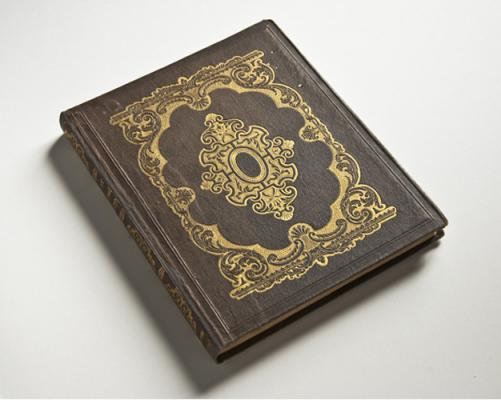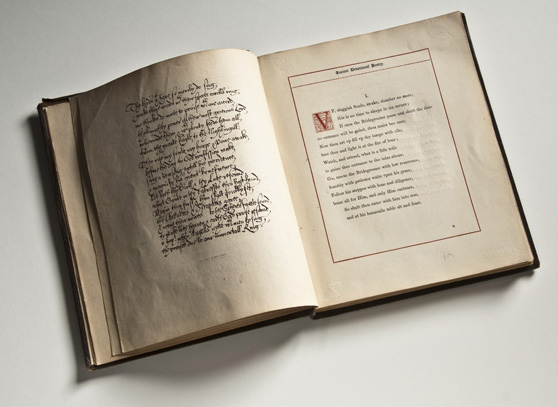A first edition copy of Ancient Devotional Poetry published in 1846
Mary Baker Eddy enjoyed reading and writing poetry. With that in mind, we decided to celebrate National Poetry Month by presenting a book of devotional poems from the Library’s collection, highlighting some extraordinary works dating back to the seventeenth century. Eddy owned several books of devotional and lyrical poetry, some from the American Tract Society. This book was published by the British equivalent of that organization.
This first edition of Ancient Devotional Poetry was published in 1846, by the Religious Tract Society of London, an institution founded as a result of an eighteenth-century evangelical revival. The Society was created in 1799 with the mission to publish and distribute Christian literature across the British Empire. Most of the literature it produced was written with women and children in mind; its most famous publications were the Boy’s Own Paper and the Girl’s Own Paper.
Our book was originally owned by Mrs. Catharine (Sykes) Bodwell. She was married to Joseph Conner Bodwell, the younger brother of Sarah Jane Bodwell and a childhood teacher of Mary Baker Eddy at the Sanborton Academy in New Hampshire. Catharine Bodwell’s brother gave her the book and included a handwritten inscription at the front:
Catharine Bodwell
from her affectionate Brother,
Edward Sykes.
January 22. 1848.
The poems in this book were reprinted from a collection of vellum manuscripts that had been dated to the late sixteenth or early seventeenth century. However, according to the book’s preface, the collection was incomplete, with about eight leaves missing. A facsimile follows the preface, containing some of the original handwritten text from the manuscripts.
Despite the missing portions, Ancient Devotional Poetry is a comprehensive collection. At the time its publication created quite a stir, because the poems were previously unknown to experts and historians. This discovery caused them to rave about the “eminent beauty” of each of the volume’s 106 selections, while enjoying the fact that the poems were “free from false glitter.”




